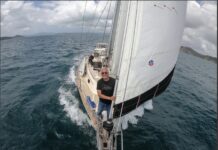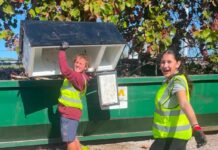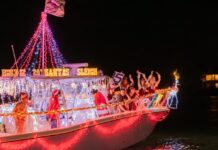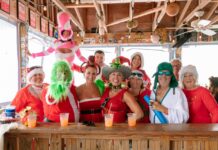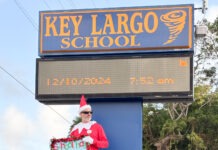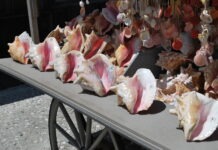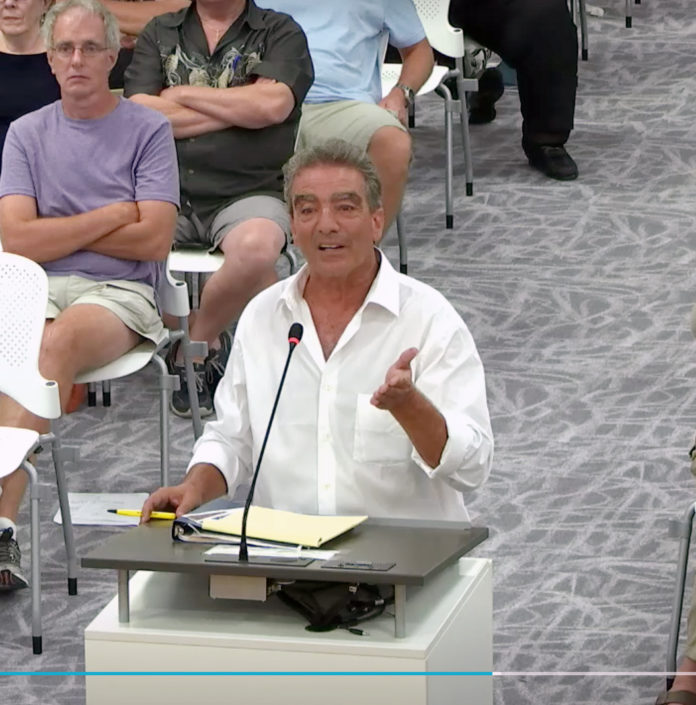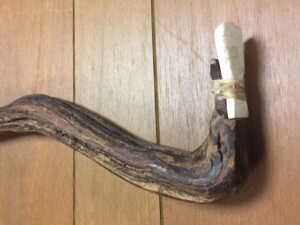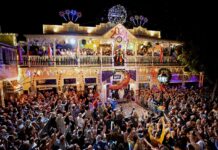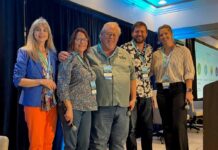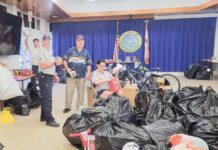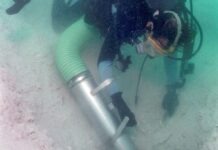The Aug. 7 Key West City Commission meeting opened with a recognition of Cheri Smith’s 25 years of service as city clerk. What followed felt like the next 25 years of Smith’s career. For close to six hours, the commission deliberated over two contentious agenda items — most notably a proposed pedestrian park, with sidewalk cafes, on the southern tip of Duval.
Michael Halpern, owner of the Southernmost House, said he and city staff had been working for more than 10 years to revitalize 1400 Duval, which is currently occupied by a Dumpster and seaweed. Along with others, such as Matt Babich of the Southernmost Beach Café, Halpern proposed an open park area that includes a food truck and sidewalk cafes.
“Whenever you move forward on a project like this, to do something good for the city, you invariably get savagely attacked,” said Halpern, as he addressed the dais.
Halpern was citing many of the negative comments, mostly anonymous, he had read or received over the past several months. Yet more than 15 in attendance spoke in favor of Halpern, with most arguing that something needed to be done to revitalize the “deplorable” end of Duval.
Citizens who signed up to weigh in on the item were asked to stand at 8:08 p.m. At that time, more than 25 people stood, more than half the room, and by 10:56 p.m. the last speaker was stepping away from the podium.
In the end, the commission voted 5-2 in favor of the project, with commissioners Sam Kaufman and Jimmy Weekley dissenting. Kaufman and Weekley argued the project not only restricted the public nature of city parks, but it also leaned in favor of privatized business.
However, plans for the project will now move forward, although the park will be subject to guidelines and rules similar to those in place at other Key West parks, including hours of operation.
• • • • •
Earlier in the evening, the city’s Historic Architectural Review Commission (HARC) weighed in on the potential demolition of the former “diesel plant” on Angela Street. HARC Commissioner Bryan Green, referencing a 78-page report, said while certain buildings are likely not salvageable, three of the structures still offer historic and economic value. The city unanimously accepted HARC’s recommendation to salvage the historic units — contingent on minimal cost burdens to the city. The plan would most likely involve grants and private contributions.
Coinciding with the HARC item was a nonprofit named The Power Boat Museum Foundation. The group proposed a powerboat museum, the first of its kind, within the historic diesel plant. Members of the nonprofit said they had developmental plans to restore the plant completely, while offering a testament to Key West’s historical and cultural significance.
Several spoke out against the group’s proposal, citing the negative environmental image that powerboats evoke, coupled by the lack of an RFP— which would offer other entities an opportunity to bid on the project.
“I cannot think of a more inappropriate use for the building than a powerboat museum,” said Key West Art & Historical Director Michael Gieda. “I think there are far more things we could consider that are more near and dear to our community.”
The commission unanimously approved a feasibility study, which will likely lead to additional suitors for the property.
• • • • •
The city unanimously voted to reject all RFP proposals and responses to those seeking to manage the Key West Amphitheater. Commissioners indicated two potential solutions: one, a potential RFQ, would allow the city to retain a percentage of event profits. The other is an option to have city staff manage the theater.
